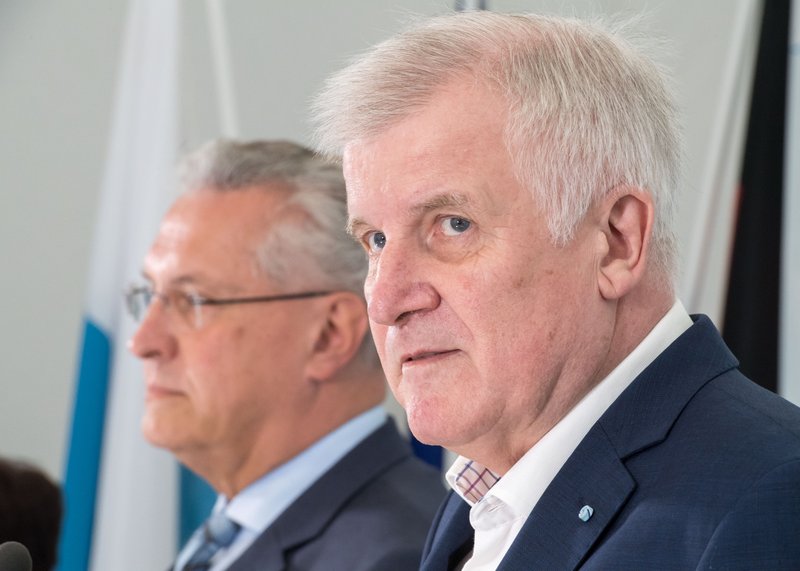BERLIN -- Officials in Germany's Bavaria state pledged Thursday to hire hundreds of extra police officers and urged tougher background checks on asylum seekers as they presented an anti-terror plan after four deadly attacks in Germany in a week.
Bavarian Interior Minister Joachim Herrmann said his state -- where three of the four attacks took place -- would hire some 2,000 additional police officers by 2020, improve police officers' equipment and create new offices to fight Muslim extremism and cybercrime.
He also called for tougher background checks on asylum seekers and new strategies to deport criminal asylum seekers more easily. Three of the four attacks were committed by asylum seekers.
"The threat of Salafist terrorism has arrived in Europe, in Germany, but also in Bavaria," Bavarian Justice Minister Winfried Bausback said at a news conference with Herrmann.
Two of the episodes -- an ax attack near Wuerzburg that wounded five and a suicide bombing that injured 15 outside a bar in Ansbach -- were the first in Germany to be claimed by the Islamic State extremist group. Both attackers were killed.
In two other attacks -- a mass shooting in Munich that claimed 10 lives, including the gunman's, and the stabbing of a woman at a restaurant in Reutlingen -- the motive is still unclear but Islamic extremism is not suspected.
The attacks have renewed criticism of Chancellor Angela Merkel's policy of welcoming refugees. More than 1 million arrived in Germany last year, though the influx has since slowed.
Also Thursday, Germany's commissioner for immigration, refugees and integration called on mosques across the country to be more proactive in regard to preventing extremism among Muslim youths.
"We need to hold mosques more responsible when it comes to prevention among teenagers," Aydan Ozoguz told the daily Heilbronner Stimme.
On Wednesday night, police raided a mosque believed to be a hot spot for Islamic extremists in the northern German city of Hildesheim. The raid didn't appear to be connected to the recent attacks.
Germany has been on the edge since the recent string of attacks and since recent deadly attacks in neighboring France.
A Section on 07/29/2016


